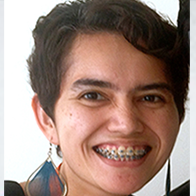I have always been wary of non-government organisations (NGOs) and activists due to the negative publicity some of them garner. I admit that I fell for the brainwashing during my university days that anything beyond the scope of my books and the walls of my academic institution should only be of a concern after I have ticked all the boxes: graduate, get a job, get married, bear children.
To look at it from a Maslow’s hierarchy-of-needs perspective, most people do have to secure and resolve one’s own bread-and-butter issues before attacking the needs of rights and constitutions and bigger issues out there.
Oh, how wrong was I. How very, very wrong was I.
The fact that anyone has the privilege to get education, get jobs, live without having to dodge bullets or abuse is due to rights. I have taken this privilege for granted, as it was handed to me on a silver platter. But what I observe recently is a movement almost of calling for rights only to the select few.
That quote towards the end of the book in George Orwell’s Animal Farm come to mind: “Four legs good, two legs better! All Animals Are Equal. But Some Animals Are More Equal Than Others.”
But is going out in force to the streets, or in some cases, setting up tents in a public space, the answer? Are there ways to create a more meaningful, sustainable form of ensuring that all Malaysians receive that silver platter of fundamental human rights?
It was due to a chance meeting at an event for MH370 that I met Mitch Yusmar Yusof, the acting executive director for the NGO, Pertubuhan Pembangunan Kebajikan dan Persekitaran Positif (SEED) that manages Pusat Bantuan Khidmat Sosial (PBKS) in Chow Kit. The history of PBKS, as it turns out, was a story of meaningful collaboration between Ministry of Women, Family and Community Development with The PT Foundation.
Since its conception in 2007, PBKS and now SEED has provided help to over 35,247 people in the Chow Kit area, with services as simple as providing a place for the homeless in Chow Kit for them to shower before going to work, to assisting with job placements to the extent of providing advise on etiquette and interview tips, referrals for health issues which include connecting the clients to AADK services as part of the harm reduction program, HIV and other STI testing services, and ensuring HIV-positive clients are referred for ART at local public hospitals, legal issues especially with personal documentation with the National Registration Department, social welfare assistance, and assistance for placements at shelter homes.
They have also organised talks and workshops on creating awareness on gender issues, health, and spiritual development through Fardhu ‘Ain classes to the community at large.
What I find most heartwarming was the fact that this small organisation caters to everyone in the community – PWID, transmen and women, street children, sex workers – without any discrimination. Instead of us seeing a particular NGO being set up to cater for a specific group, here is an NGO that tackle the social issues in Chow Kit in a comprehensive and inclusive manner.
Many of the employees at SEED were themselves clients before, having benefited from the extension of a helping hand to them when they were in need- they now give back and pay it forward to help others.
I can’t help but feel proud and hopeful the first time I set foot in PBKS. Being introduced to what the foundation has done, I can’t help but think: “Hey, Malaysians are generally an awesome group of people with this great spirit of giving back to the community.”
Many other NGOs operate around Chow Kit, including soup kitchens and Religion of Love, to name a few; but SEED/PBKS provides a physically accessible centre and is proof that there can be a great collaboration between a Ministry in our government and the civil society.
Yet, such efforts are now being hampered by the removal of funding by the Ministry. I was informed that PBKS/SEED is to “close-up shop” by the end of this year due to lack of funds by the Ministry. This is mind-boggling to me, and I am bewildered by the news as the 2015 Budget clearly allocated a great sum of money for both community development and empowering NGOs. Should not such NGOs with a good track record of successful programs and collaborative efforts with the Ministry itself be empowered, sustained and provide means to expand and improve their services to the community?
Or are we only empowering the NGOs who rally to the streets with hypothetical pitchforks crying that their rights as a select group in the community are being abused and then question what many hardworking Malaysian citizens have done?
I am a baffled citizen of Malaysia. – December 17, 2014.
* This is the personal opinion of the writer or publication and does not necessarily represent the views of The Malaysian Insider.


Comments
Please refrain from nicknames or comments of a racist, sexist, personal, vulgar or derogatory nature, or you may risk being blocked from commenting in our website. We encourage commenters to use their real names as their username. As comments are moderated, they may not appear immediately or even on the same day you posted them. We also reserve the right to delete off-topic comments